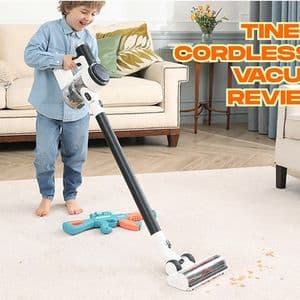Understanding How Roombas Work
Before we can judge performance, it's helpful to understand how a Roomba functions.
Roombas are robotic vacuum cleaners designed to navigate autonomously through your home. Using a combination of sensors, rotating brushes, and suction mechanisms, these devices clean floors without human intervention. Some models even come with smart mapping, app controls, and advanced scheduling features.
But how does that translate to hardwood?
The Nature of Hardwood Floors
Hardwood floors are popular for their durability, visual appeal, and timeless charm. However, they also demand specific care. Unlike carpet, hardwood can scratch easily, especially if debris is ground into the surface or if a cleaning tool has stiff bristles.
That’s why it's essential to know whether robotic vacuums are gentle and effective on such delicate flooring.
So, Are Roombas Good for Hardwood Floors?
Yes — in many cases, Roombas perform very well on hardwood floors.
Here’s why:
-
Suction Strength: Roombas are built to handle fine dust and larger particles equally well. On hardwood, this means they can efficiently clean without needing aggressive agitation.
-
Rubber Brushes: Most modern Roombas use rubberized brushes instead of bristle-based rollers, reducing the risk of scratches.
-
Soft Wheels: Their wheels are designed to grip without damaging the floor, maintaining mobility while protecting your finish.
-
Adaptive Navigation: Their sensors help them avoid stairs and obstacles, ensuring they don’t slam into walls or furniture legs — a frequent concern for hardwood preservation.
While individual experiences may vary depending on your model and floor condition, the design of Roombas generally suits the smooth surface of hardwood quite well.
Where Roombas Excel on Hardwood
Let’s explore the key advantages of using a Roomba on hardwood floors:
1. Consistent Cleaning
Hardwood floors tend to show dust and pet hair more clearly than carpets. A Roomba can run daily or multiple times a day, keeping your floor consistently tidy without manual sweeping.
2. Edge-to-Edge Reach
Most Roombas come with side-sweeping brushes that pull in debris from along baseboards and corners. This is particularly helpful on hardwood floors, where fine particles like dust and dander can gather and remain visible.
3. Set and Forget
Once programmed, Roombas clean without supervision. This hands-free convenience allows homeowners to maintain pristine hardwood without lifting a finger.
4. Safe for Finishes
Unlike vacuums with spinning brush bars, Roombas designed for hard floors use gentler cleaning actions. That reduces the risk of marring or dulling your wood’s finish over time.
Potential Drawbacks to Consider
No tool is perfect — and that includes robotic vacuums. There are a few concerns you should keep in mind.
1. Larger Debris Limitations
While Roombas handle dust and hair effortlessly, larger items (like cereal, pebbles, or chunks of pet food) may be left behind or pushed around.
2. Noise on Hard Surfaces
Some users note that Roombas are louder on hardwood floors compared to carpets. The echoing of wheels and internal motors can amplify sound in rooms with minimal fabric or furniture.
3. Battery and Runtime
Depending on your home’s layout, you may find that the Roomba doesn’t cover the entire space on a single charge. While newer models auto-recharge and resume, earlier versions might not.
Maintenance Tips for Roomba Owners with Hardwood
Want to get the most from your Roomba on hardwood floors? Try these tips:
-
Empty the Bin Frequently: A full bin can reduce suction efficiency.
-
Clean the Sensors: Dust buildup can affect navigation and docking.
-
Replace Filters and Brushes regularly to maintain cleaning power.
-
Check for Dragged Debris: Occasionally inspect the wheels to make sure dirt or small items aren’t being pulled across the floor, which could scratch it.
When to Avoid Using a Roomba on Hardwood
There are a few rare scenarios where using a Roomba might not be ideal.
If your hardwood floor has deep grooves, uneven planks, or loose boards, the robot may struggle to navigate or miss dirt in crevices. Also, heavily waxed or high-gloss surfaces might affect the vacuum’s traction or cause it to slide slightly.
In such cases, a manual clean or targeted spot clean might work better.
How Roombas Compare to Other Hardwood Cleaning Options
There are many cleaning tools for hardwood: upright vacuums, brooms, mops, and hybrid devices. So how does the Roomba stack up?
Compared to a traditional broom, a Roomba offers more thorough and frequent cleaning. Against upright vacuums, the Roomba loses on power but wins on automation and maintenance ease.
It’s worth noting that for those seeking a hardwood floor robot mop, there are separate robot mop models (including from the same brand) that focus on wet cleaning. These are better suited for sticky messes and spills.
Alternatives: The Rise of the Hardwood Robot Vacuum
The growing popularity of automated cleaning has led to new products tailored specifically for wood floors.
The hardwood robot vacuum category includes models with lower suction settings, softer wheels, and cleaning patterns optimized for hard surfaces. These features reduce noise, preserve finish, and adapt better to wood-specific challenges.
Roombas can serve as an all-purpose solution, but specialized hardwood robot vacuums may offer more customization depending on your needs.
Final Thoughts
So, are Roombas good for hardwood floors?
In most cases, absolutely. They combine gentle cleaning action with consistent coverage, making them a convenient and safe choice for hardwood floor owners. While they aren’t perfect for every situation, especially with heavy debris or damaged boards, their intelligent design and ongoing improvements continue to make them a smart addition to many homes.
For those seeking added functionality, pairing a Roomba with a hardwood floor robot mop can offer a more complete cleaning system — dry and wet.
If you’re thinking of investing in robotic cleaning, understanding your floor’s unique characteristics is key. But rest assured: for the vast majority of homes with hardwood floors, a Roomba fits right in.










